History can change in an instant. A wrong turn, an off-the-cuff statement, or a single shot can forever alter the course of the world and the people in it. Sometimes, history can be changed completely by accident, with observers and participants having no idea what a monumental moment they just witnessed. More commonly, however, the world changes on purpose, through intentional, measured decisions that change the course of history. Sometimes, these choices are made by world leaders or others who have been selected by their peers to make such decisions. Other times, it’s average people deciding what they think is best for the rest of the population.
In an ideal situation, these monumental decisions are made with plenty of time to consider the pros and cons. However, that’s not always possible. Sometimes, choices have to be made quickly, and everyone has to live with the consequences. These split-second decisions that changed the world are both fascinating and humbling, a reminder to everyone of the potential weight of their words and actions.
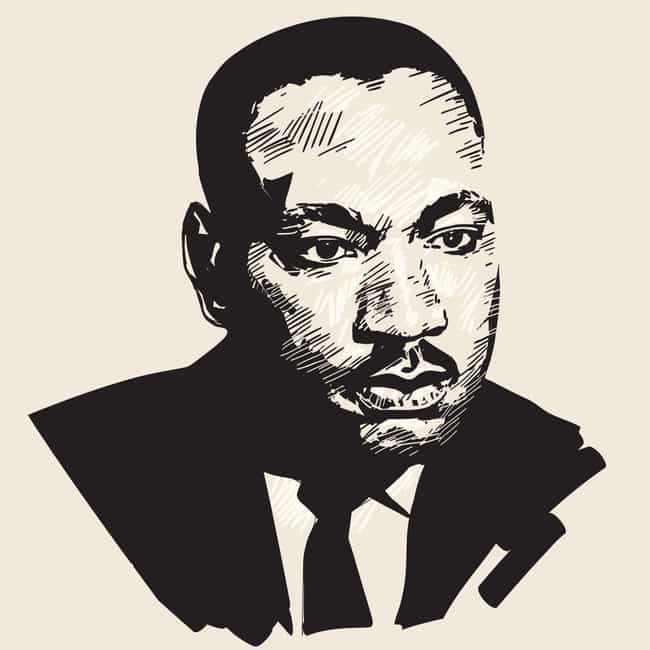
MLK Improvised ‘I Have A Dream’
If there’s one Martin Luther King Jr. quote that everyone knows, it’s “I have a dream.” This line came as part of a powerful and inspiring speech on civil rights delivered by the reverend August 28, 1963 in front of the Lincoln Memorial. In it, King espoused his vision of a future that included racial harmony, framed around the idea of a “dream” he had. However, originally, there wasn’t meant to be any mention of dreaming.
King had an entire speech written and prepared, but when Mahalia Jackson, a gospel singer in the audience, shouted “tell ‘em about the dream,” King started to improvise. He began speaking from the heart, not his prepared notes, and the result was perhaps the greatest example of public speaking in American history.
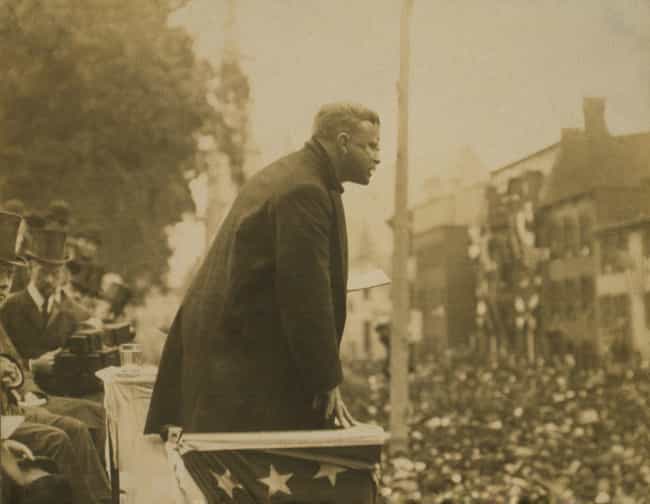
Teddy Roosevelt Saved His Own Life By Putting A Thick Speech In His Breast Pocket
Teddy Roosevelt, easily America’s most action movie-esque president, loved to make grand speeches. In 1912, while making another run at the presidency as the leader of a new political party, the Progressives, Roosevelt had prepared a 50-page diatribe that he aimed to deliver to a waiting audience. Before heading there, Roosevelt randomly decided to fold up the speech and place it in his breast pocket, a small decision that soon saved his life.
When standing to address the crowd, an assailant shot Roosevelt in the chest, but the bullet was greatly slowed by the massive hunk of paper in his pocket. Of course, being the bull moose that he was, Teddy still got up on that stage and delivered a rousing speech, even with a piece of lead lodged inside his body.
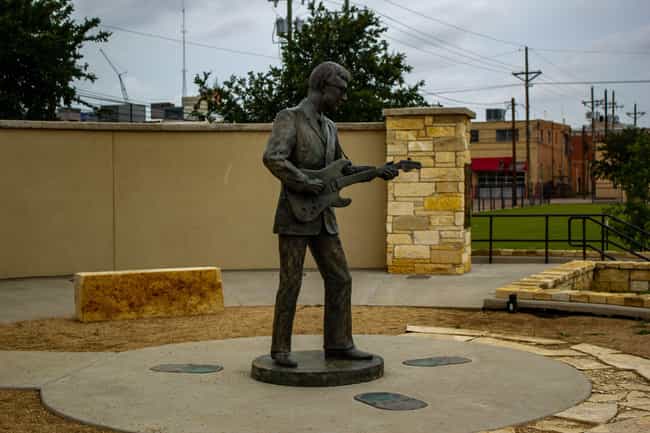
Buddy Holly’s Desire To Do Laundry Changed Rock History
One of the most infamous moments in music history is February 3, 1959, otherwise known as “The Day the Music Died.” That day, Buddy Holly, Richie Valens, and JP Richardson, Jr. (also known as the Big Bopper), all famous musicians, perished when their small plane crashed in Iowa. As it turns out, they were only on that plane due to a rash, and seemingly inconsequential, decision by Holly.
They had all been on the road for a while and were beginning to run out of clean clothes. They were scheduled to take a bus to their next show in Minnesota, but Holly really wanted some clean clothes and convinced the others to charter a plane with him so they could arrive early and do everyone’s laundry. This desire for fresh skivvies proved to be fatal.
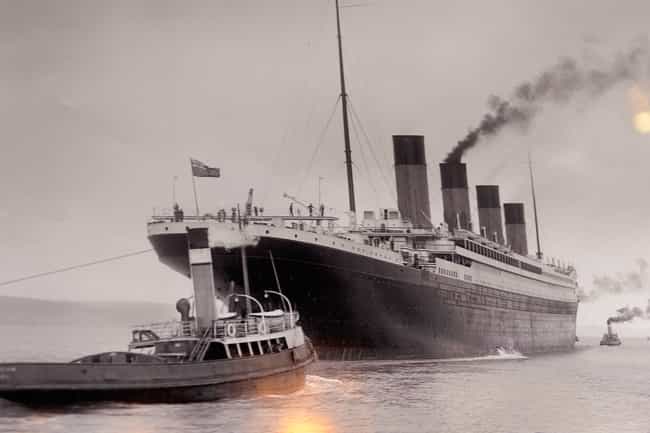
A Last-Minute Officer Change Doomed The Titanic
The sinking of the Titanic is one of the greatest naval tragedies in history. The ship, famously described as “unsinkable,” hit an iceberg in the Atlantic and sank shortly thereafter. There is plenty of blame to be passed around for the massive loss of life on that night, but one portion belongs to a last-minute decision to switch officers.
Second Officer David Blair was removed from the crew just before the ship set sail, and he forgot to hand in his key to a locker that contained binoculars for the lookout. The ship had set off before he realized, and so the crew had to watch for icebergs using only their eyes. Obviously, this proved woefully inadequate.
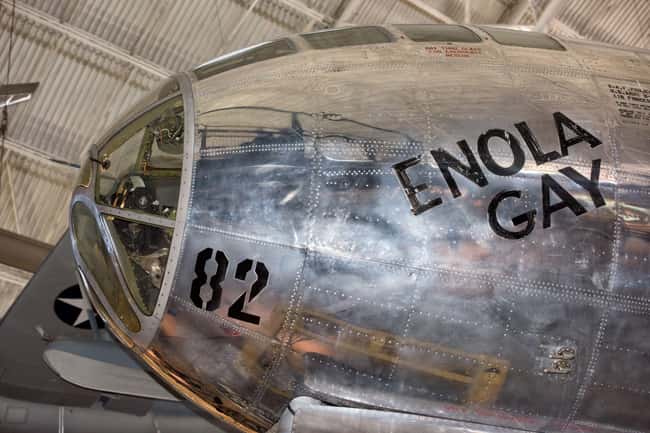
Clouds Saved Kokura From Nuclear Attack
For such a monumental couple of events, the nuclear bombings of Hiroshima and Nagasaki were not planned in incredible detail. The US wasn’t even sure they were going to use nuclear tools until not long before they were dropped, and their list of potential target cities was large. The US didn’t meditate on which Japanese cities to target as Japan’s surrender was nearly guaranteed in the face of nuclear materials.
The original plan was for Kokura to be hit right after Hiroshima, but a young crewman named Kermit Beahan determined it was too cloudy to see all of Kokura, so he called it off. This was a lucky break for Kokura, but not so much for Nagasaki, the secondary option.
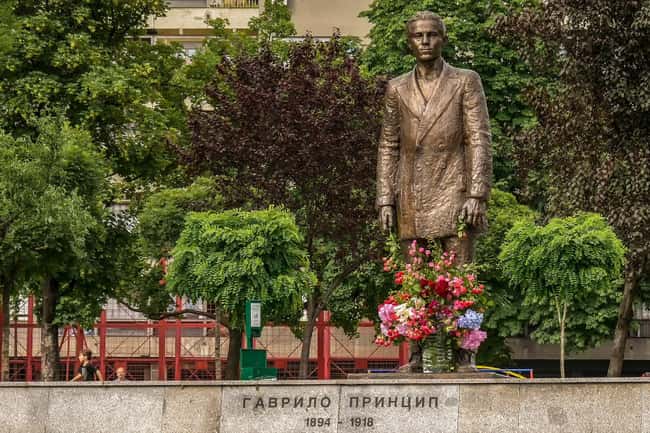
Gavrilo Princip And A Wrong Turn Brought On WWI
Gavrilo Princip thought he missed out on his shot to alter history. He was part of a Bosnian militant group that sought to oust the rulers of the Austro-Hungarian Empire, and that meant he had a problem with Archduke Franz Ferdinand. On June 28, 1914, Princip and others planned to take out Ferdinand as his car paraded by. They threw a bomb under the car, but the explosion was delayed, and Ferdinand escaped unharmed. A while later, Ferdinand decided to visit the victims of the attack at a local hospital, and he instructed his driver to take a different route than the one he was on before.
The driver took a wrong turn, ended up on the exact same street, and drove right by Gavrilo Princip, who was still there. Princip couldn’t believe his luck, and he walked up to take the shot that would spark WWI.
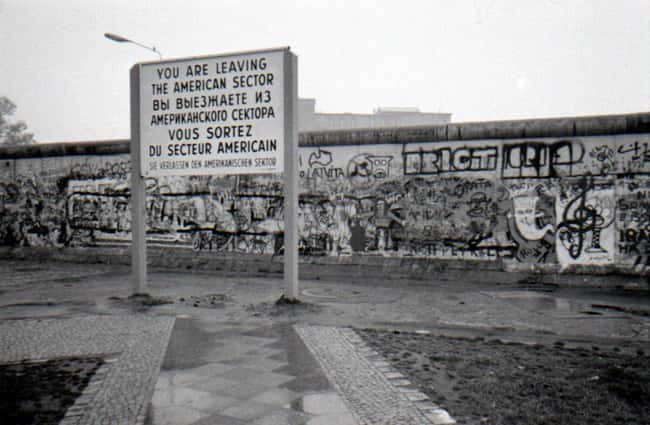
Lazy Reading Brought Down The Berlin Wall
The fall of the Berlin Wall, which occurred in 1989, is one of the most important moments of the 20th century. It also happened by accident. Guenter Schabowski, a spokesman for the East German Politburo, was hosting a press conference about the possibilities of East Germany allowing travel through the Wall. Here’s the thing: Right before the press conference, Shabowski received a memo from Politburo updating him on what to say, but he didn’t read the entire statement.
After nearly an hour of speaking, Schabowski got a bit muddled and confused about what was actual policy and what only the Politburo were discussing, and he overestimated the contents of that pre-conference memo. He mentioned opening their fortified border and travel possible for every citizen, which got the attention of the room.
When a reporter asked when the changes would take effect, and another shouted “Immediately?!” Schabowski responded with a distracted “Immediately. Right away.” This wasn’t entirely accurate, but word quickly got out, and the rest is history.
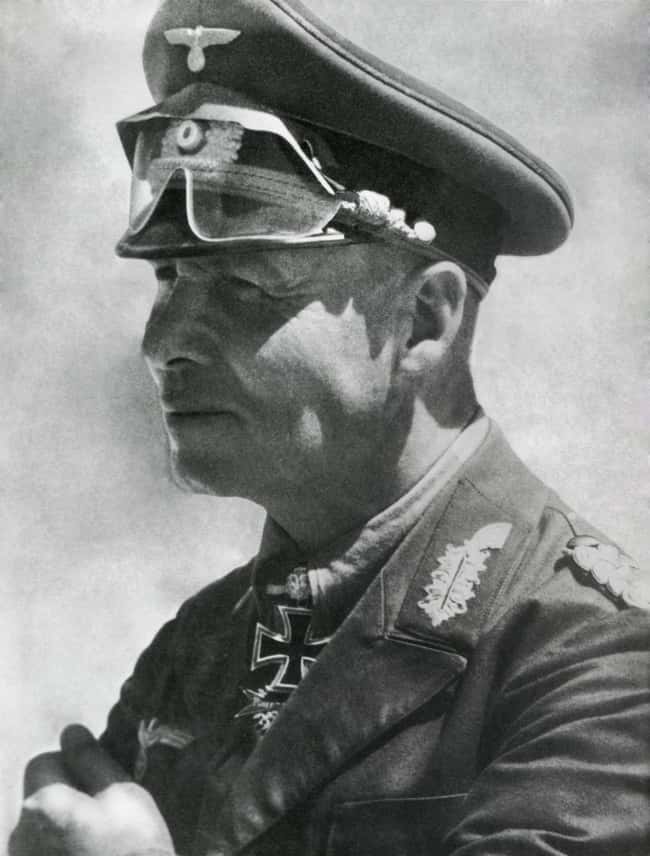
The ‘Desert Fox,’ Erwin Rommel, Decided To Surprise His Wife With Vacation Right Before D-Day
The storming of Normandy on D-Day is perhaps the single most important moment in WWII – at least from an Allied perspective. It also may have gone a completely different way if not for a surprise birthday party. German Field Marshall Erwin Rommel, the Desert Fox, was in charge of the defense at Normandy, but he decided on a whim to surprise his wife with a vacation for her birthday.
This caused him to leave his post for a few days, coincidentally right before the Allies attacked. Had the most skilled German military tactician been present, things could have turned out differently. The Third Reich troops were unable to gauge weather conditions without the expertise of Rommel, and the Allies took advantage of this lack of foresight.
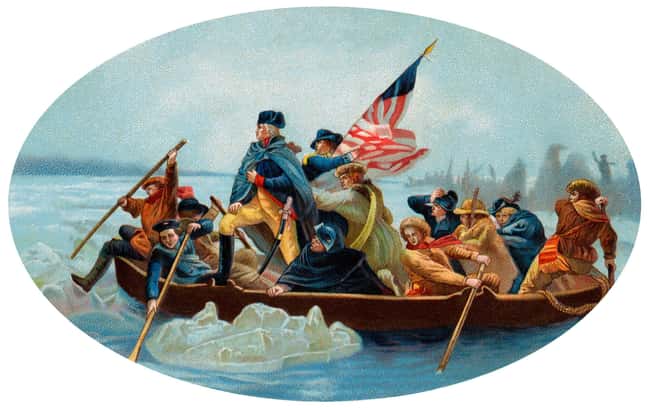
Johann Rall Lost The American Revolution For Britain Because He Didn’t Want His Poker Game Interrupted
Johann Rall is a lesser-known German Colonel who commanded the Hessian troops that aided the British in the American Revolution. Rall is most notable for being the victim of George Washington’s near-mythic crossing of the Delaware, but he needn’t have been. Rall was handed intelligence about Washington’s crossing the night before it happened, but the note was in English, which he didn’t read, and he was busy playing chess, or poker, according to some accounts.
Rall decided to stuff the note in his pocket and leave it for later, but there was no later for him as he perished because of the injuries from the fighting to come.

Stanislav Petrov Singlehandedly Saved The World From Nuclear War
Everyone in the world owes a great debt of gratitude to Stanislav Petrov, yet few even know his name. If not for Petrov, a nuclear battle would almost certainly have erupted between the US and the Soviet Union, and it would have devastated humankind.
On September 26, 1983, Petrov was working at his job monitoring the Soviets’ early warning systems. Several sensors went off, indicating the US had launched missiles toward the Soviets, which meant it was Petrov’s job to begin returning fire. Sensing something was amiss, he quickly decided to delay telling his superiors, knowing the awful repercussions for the world if he did.
Faced with such a decision, weighing the potential for an apocalyptic nightmare against the profound personal repercussions if he was mistaken, Petrov hesitated. Eventually, the triggered sensors proved to be a false alarm, meaning that Petrov’s decision to disobey his duty – a deliberate disavowal – saved not just his country, but also the world.

Marie-Antoinette’s Last-Minute Decisions Doomed Her Family
History has not shined very brightly on Marie-Antoinette, and while not all of her reputation is deserved, the story of her passing definitely doesn’t help matters. Marie-Antoinette was famously beheaded during the French Revolution, at which time she definitely didn’t say “Let them eat cake.”
She and her family could have totally avoided perishing, however, had she not made some bold choices. The royals were set to flee in an ordinary carriage, but Marie insisted on the fancier model, which was slower and way more conspicuous. Antoinette did not want to split the family up, which would have happened if they had taken two of the smaller, faster carriages.
This most likely played into the family’s ultimate capture and slaying.
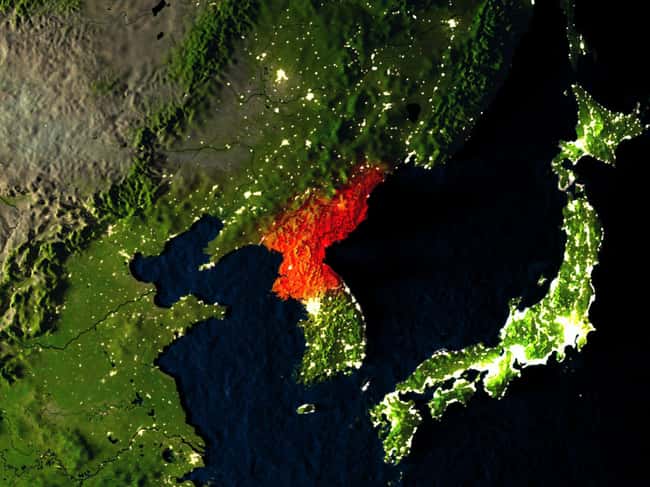
William Perry Held His Tongue And Avoided Combat With North Korea
In 1994, under the Clinton administration, the United States came close to battling North Korea, which had been gathering the means to make nuclear tools. If not for one man holding his tongue, it very well might have. Defense Secretary William Perry was briefing President Clinton on potential options to stop the North Korean nuclear program.
One of his best options included a strategic bombing of the country’s nuclear facility, something Perry believed would be successful but likely to cause an all-out brawl. He held off on sharing that plan with Clinton, sensing he would probably go for it. A few days later, a breakthrough occurred, and a peaceful settlement was reached.
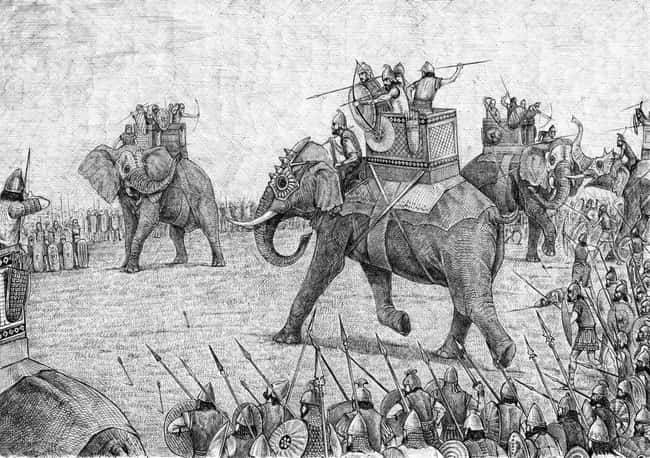
Hannibal Created A Battle-Losing Avalanche By Striking A Snow Drift With A Walking Cane
Hannibal Barca was a famed Carthaginian military leader who notably led combat elephants over the Pyrenees and Alps into Rome. He was ultimately unsuccessful in his attempts to take Rome, but he may not have been if not for a single poke he made with his cane. While crossing the Alps, Hannibal’s army encountered a large snowfall, which slowed them right down.
Wanting to prove that the ground they traveled on was still solid, Hannibal struck a large snow drift with his walking cane. This touched off an avalanche, which took out a large portion of his army.








